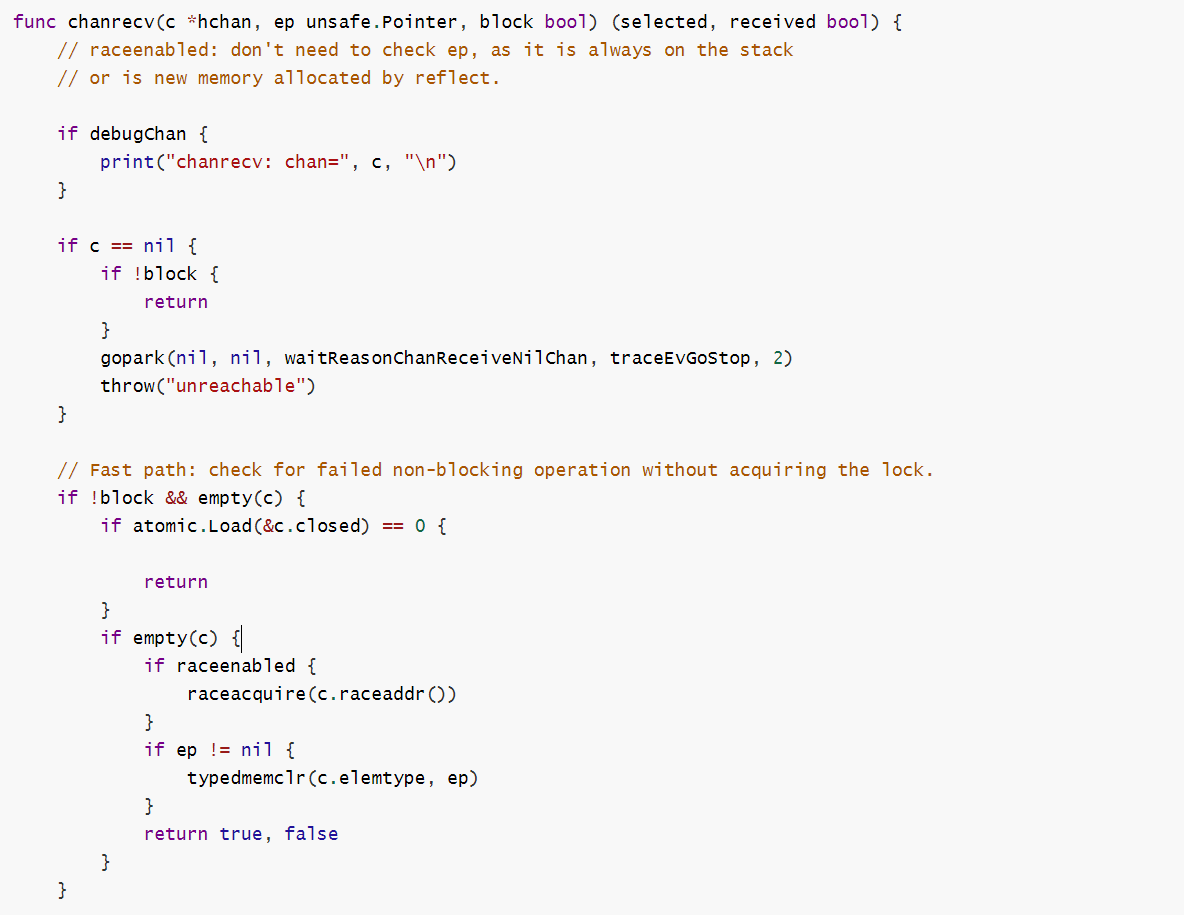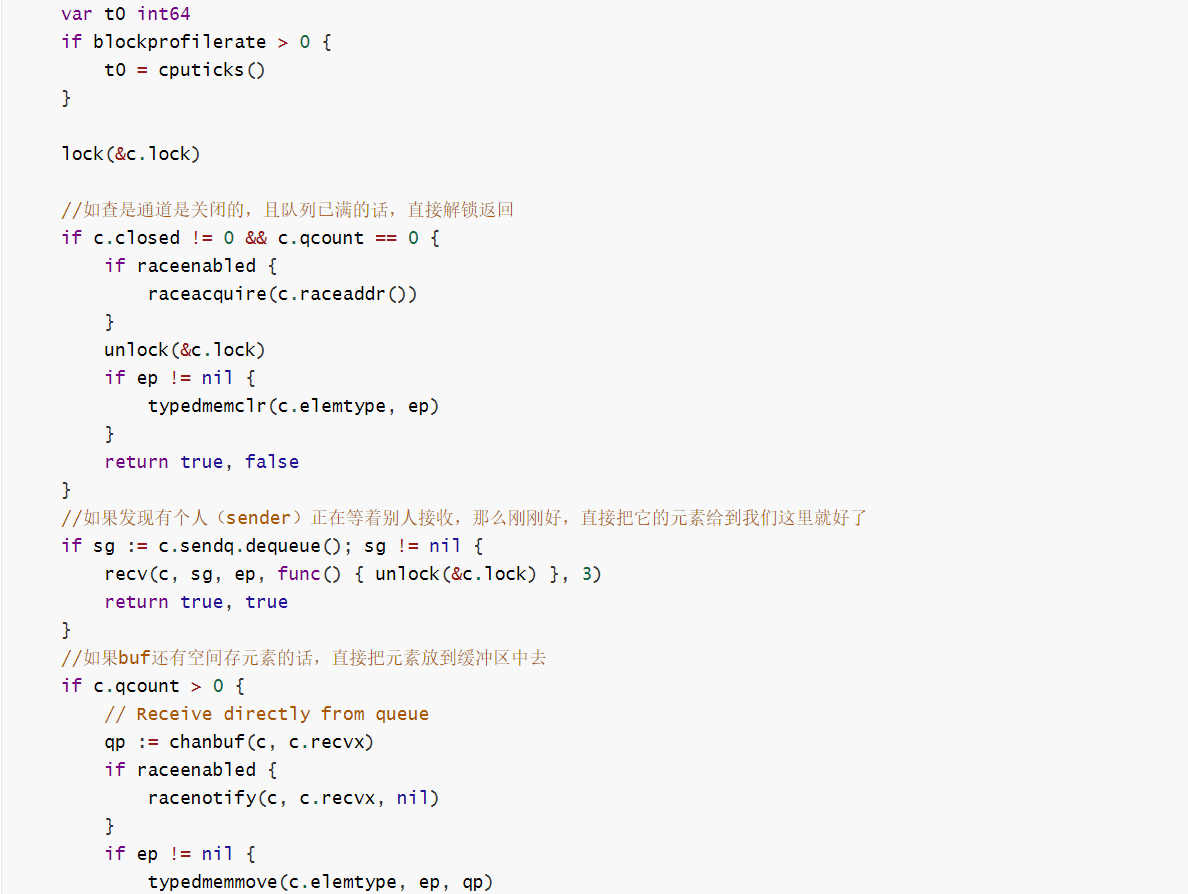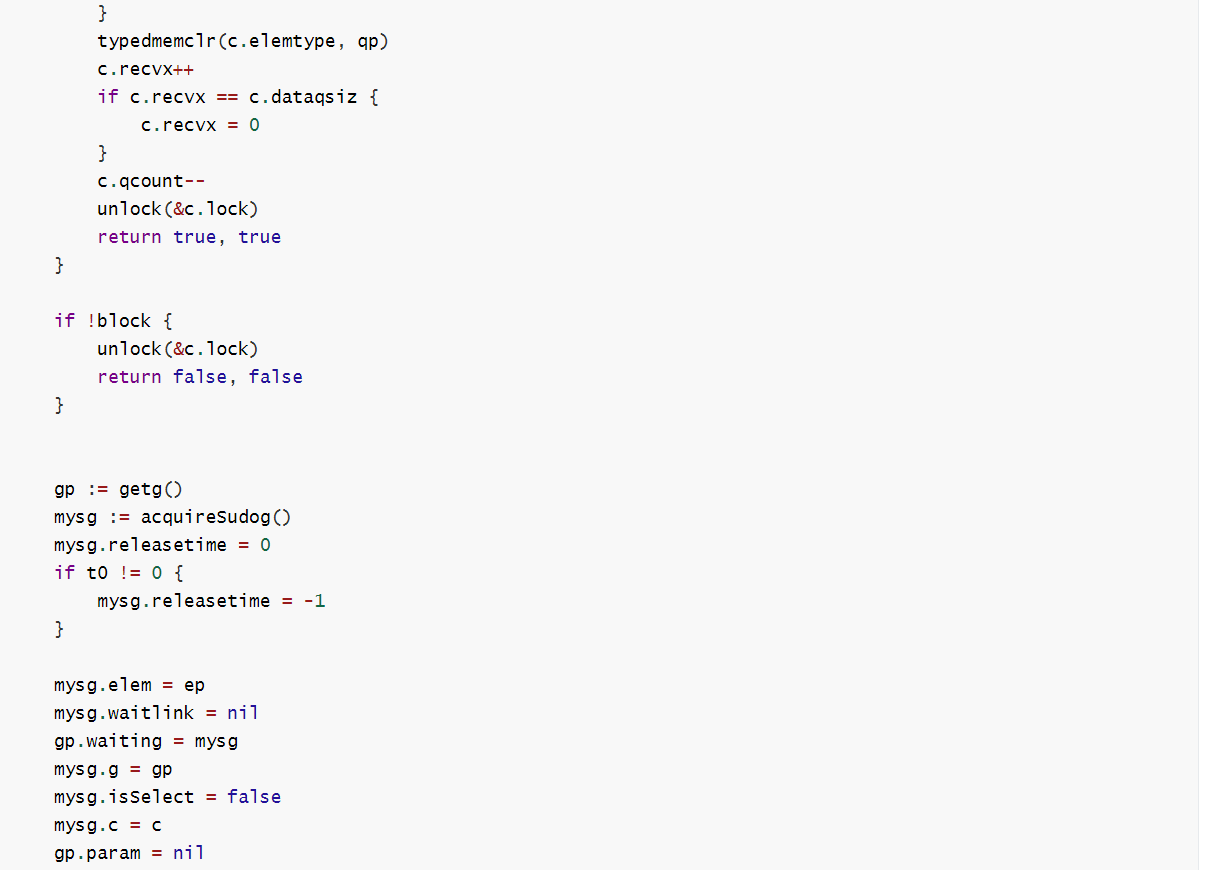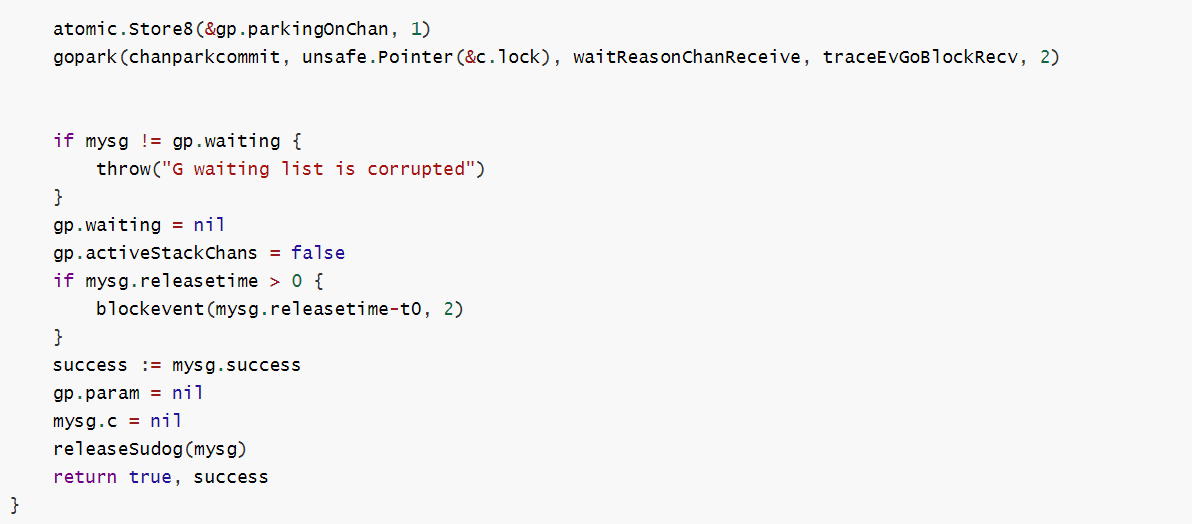Go chan解析
1.chan数据结构
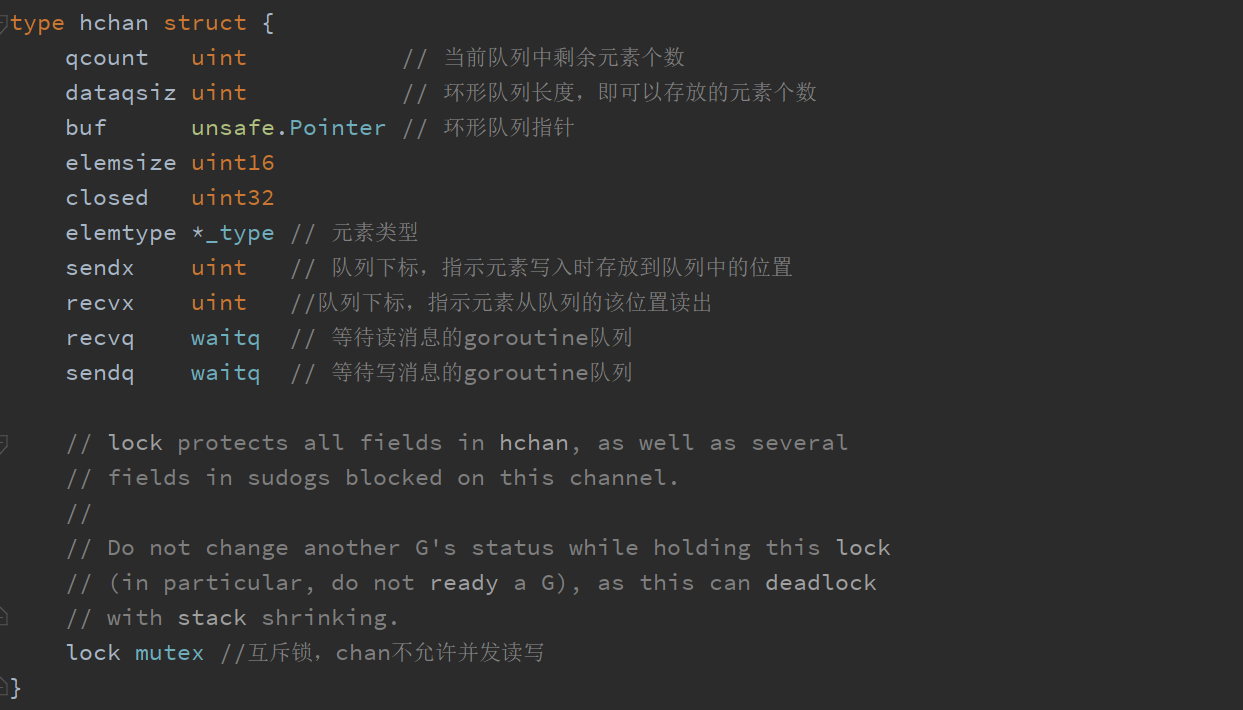
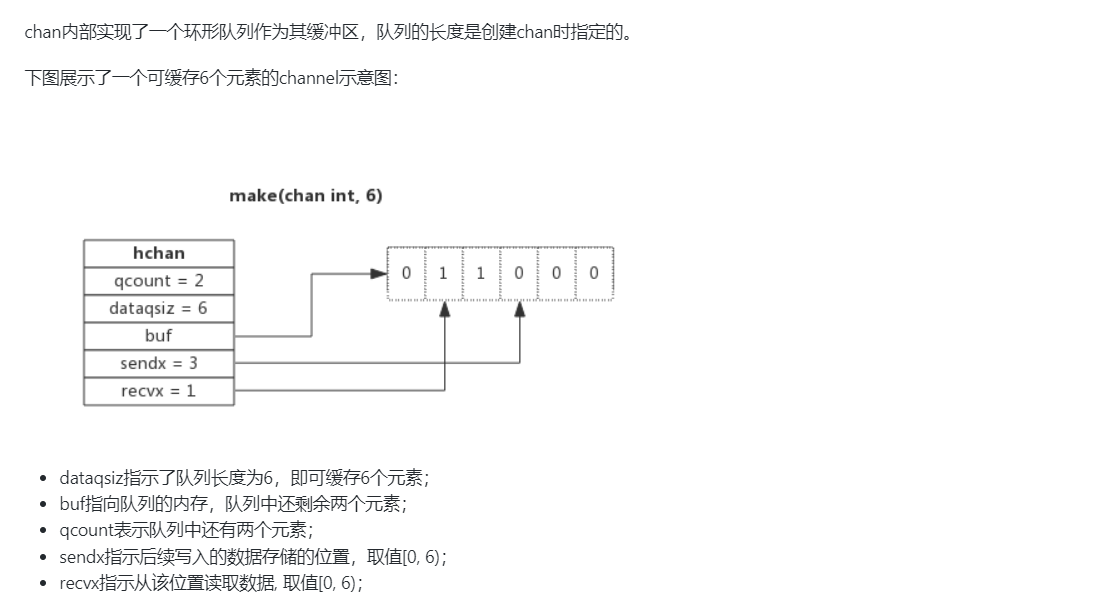
一个channel只能传递一种类型的值,类型信息存储在hchan数据结构中。
- elemtype代表类型,用于数据传递过程中的赋值;
- elemsize代表类型大小,用于在buf中定位元素位置。
一个channel同时仅允许被一个goroutine读写,为简单起见,本章后续部分说明读写过程时不再涉及加锁和解锁。
2.创建Chan
创建channel的过程实际上是初始化hchan结构。其中类型信息和缓冲区长度由make语句传入,buf的大小则与元素大小和缓冲区长度共同决定。
makeChan源码如下:
func makechan(t *chantype, size int) *hchan {
elem := t.elem
// compiler checks this but be safe.
if elem.size >= 1<<16 {
throw("makechan: invalid channel element type")
}
if hchanSize%maxAlign != 0 || elem.align > maxAlign {
throw("makechan: bad alignment")
}
mem, overflow := math.MulUintptr(elem.size, uintptr(size))
if overflow || mem > maxAlloc-hchanSize || size < 0 {
panic(plainError("makechan: size out of range"))
}
// Hchan does not contain pointers interesting for GC when elements stored in buf do not contain pointers.
// buf points into the same allocation, elemtype is persistent.
// SudoG"s are referenced from their owning thread so they can"t be collected.
// TODO(dvyukov,rlh): Rethink when collector can move allocated objects.
var c *hchan
switch {
// no buffer 的场景,这种 channel 可以看成 pipe;
case mem == 0:
// Queue or element size is zero.
c = (*hchan)(mallocgc(hchanSize, nil, true))
// Race detector uses this location for synchronization.
c.buf = c.raceaddr()
case elem.ptrdata == 0:// channel 元素不含指针的场景,那么是分配出一个大内存块;
// Elements do not contain pointers.
// Allocate hchan and buf in one call.
c = (*hchan)(mallocgc(hchanSize+mem, nil, true))
c.buf = add(unsafe.Pointer(c), hchanSize)
default:// 默认场景,hchan 结构体和 buffer 内存块单独分配;
// Elements contain pointers.
c = new(hchan)
c.buf = mallocgc(mem, elem, true)
}
// channel 元素大小,如果是 int,那么就是 8 字节;
c.elemsize = uint16(elem.size)
// 元素类型,这样就知道 channel 里面每个元素究竟是啥
c.elemtype = elem
c.dataqsiz = uint(size)
lockInit(&c.lock, lockRankHchan)
if debugChan {
print("makechan: chan=", c, "; elemsize=", elem.size, "; dataqsiz=", size, "
")
}
return c
}
makeChan只会初始化四个参数:buf,elemsize,elemtype,dataqsize
channel发送的代码解析如下:
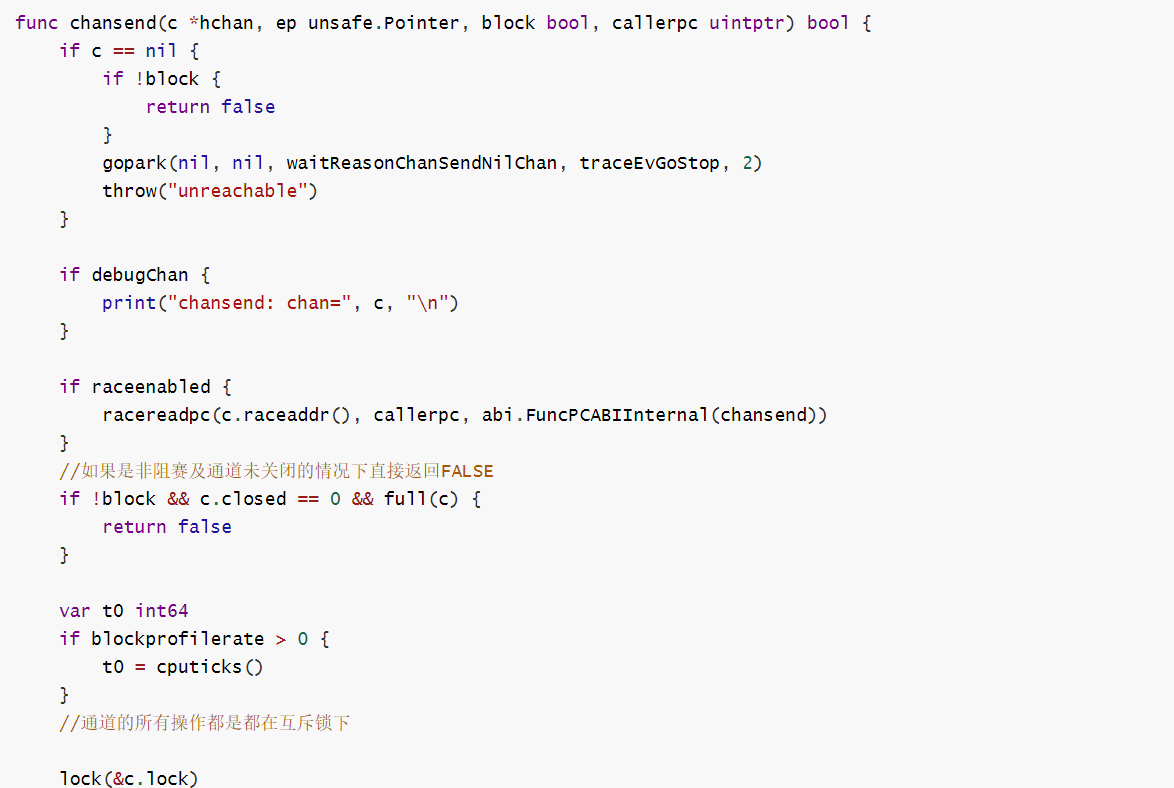
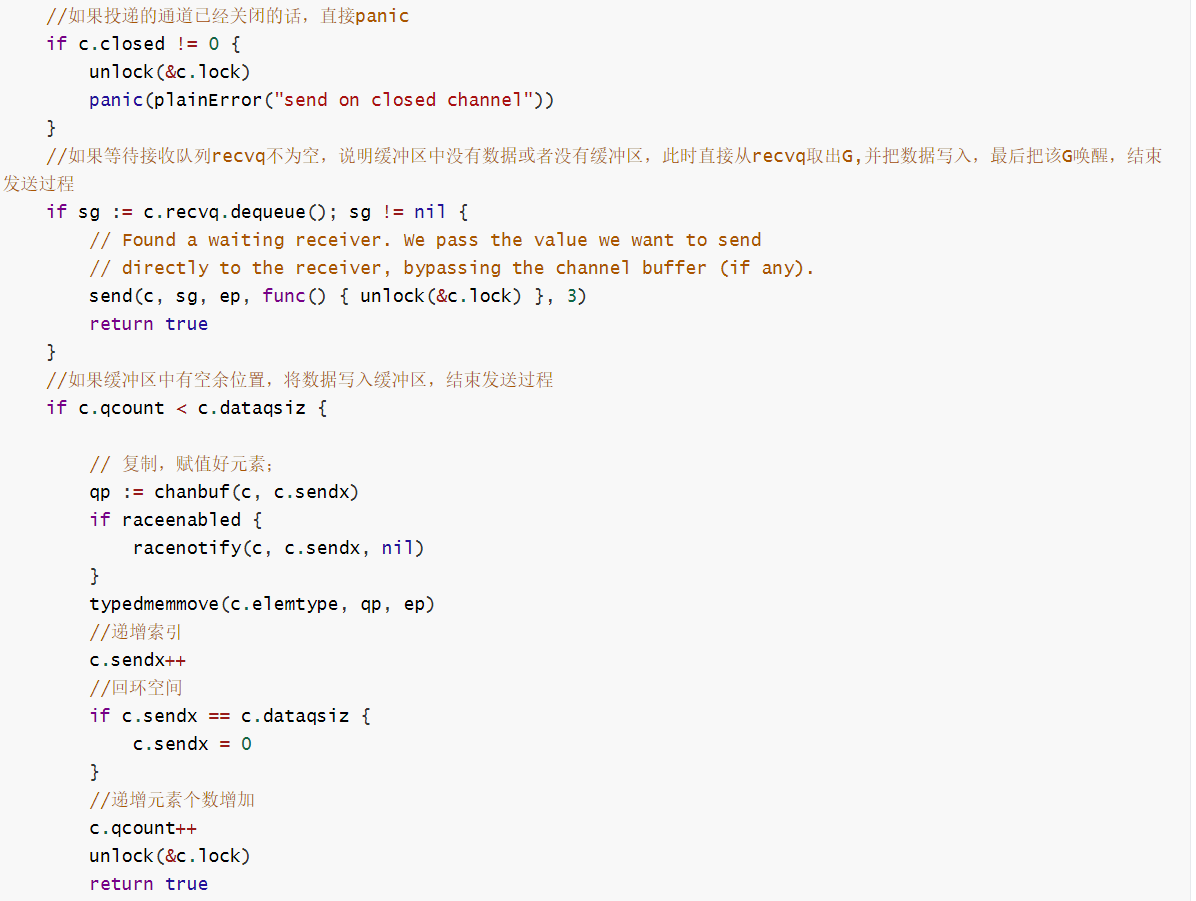
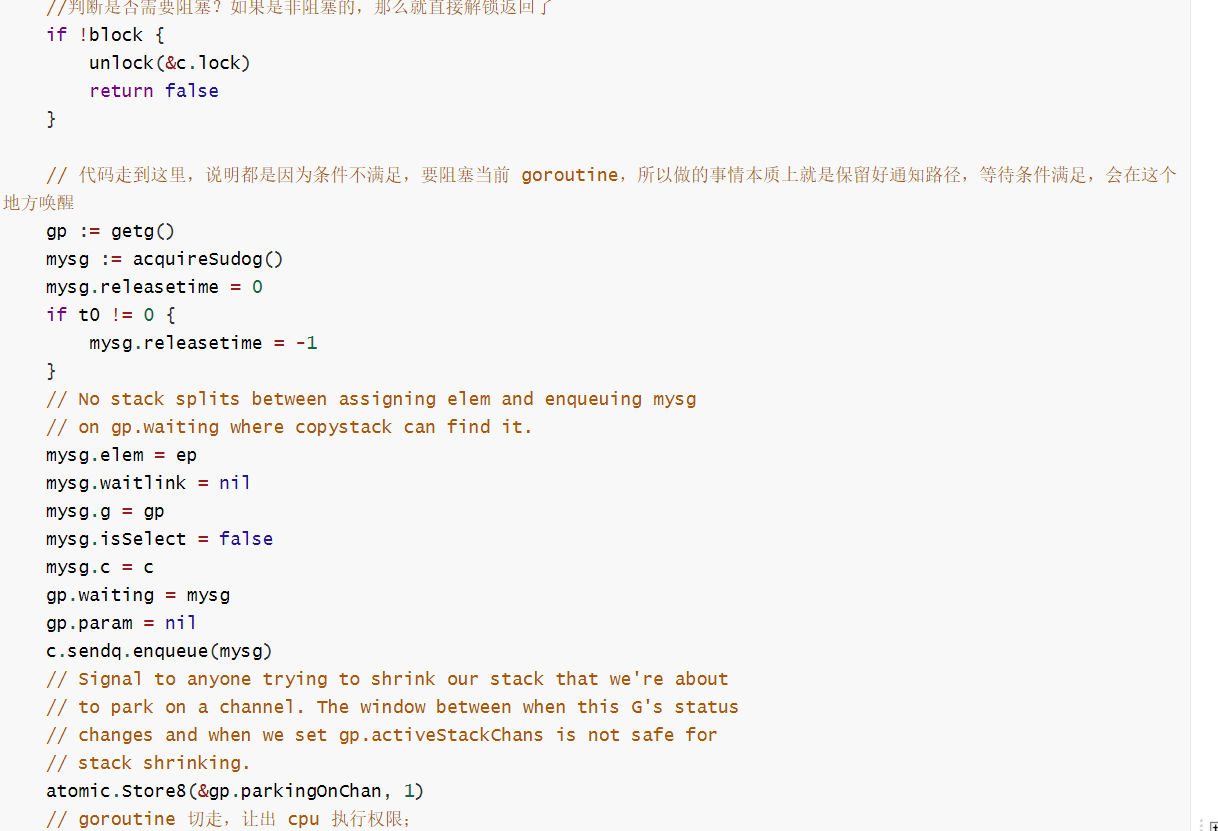
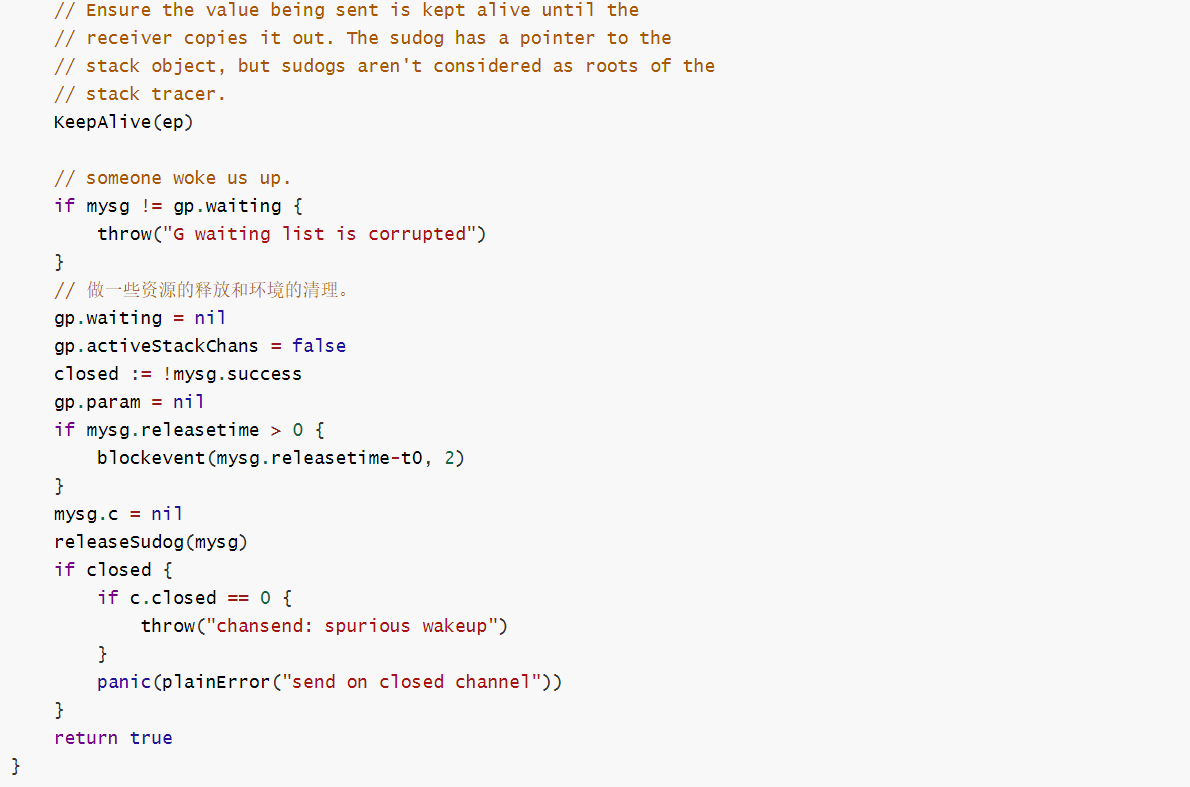
channel接收数据的代码如下:
